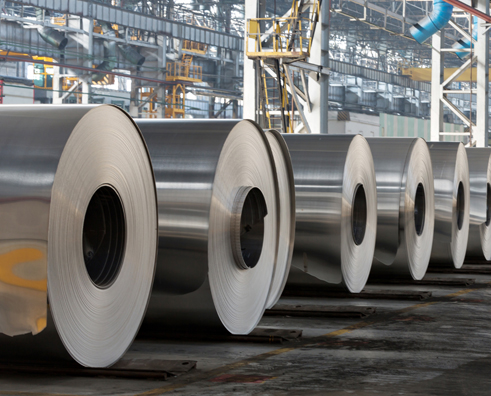FPA Outlines Opposition to Aluminum Foil Tariff Proposal
Department of Commerce’s Preliminary Determinations Expected Feb. 28

The Flexible Packaging Association (FPA) continues to push back against a proposal by the federal Department of Commerce (DOC) to extend aluminum tariffs first implemented by the Trump administration against China.
In a news release from Jan. 17, FPA outlines its opposition to the DOC proposal that would extend tariffs on aluminum foil to South Korea and Thailand, saying the plan would threaten jobs in the U.S., and DOC should not be “picking winners and losers in U.S. manufacturing markets.”
“But that is exactly what they are doing in the case of aluminum foil imports,” the FPA says.
DOC originally intended to act on the tariff expansion at the end of 2022 but agreed to extend the deadlines for the preliminary and final determinations to February 28 and July 18, respectively.
Tax Foundation Report Argues Against Tariffs
In 2018, the Trump administration’s move to protect domestic steel and aluminum industries as a national security measure was supported by U.S. steel and aluminum industries while industries that consume steel and aluminum opposed the measures, according to a September 2022 report from the Tax Foundation.
The Washington, D.C.-based think tank noted that the Section 232 tariffs on steel and aluminum imports were intended as a national security measure. But the tariffs increased the cost of production for manufacturers, raising prices for consumers. Repealing the tariffs would increase GDP by 0.02% and create more than 4,000 jobs, the organization determined.
“While these tariffs may benefit producers of those intermediate inputs and stimulate employment in those protected industries, they often come at a high cost to other industries in the economy,” the Tax Foundation reports, saying some estimates put job losses from the tariffs at 75,000. “Ultimately, the costs of these tariffs are borne by consumers, who face higher prices for goods that use the tariffed inputs. The Section 232 tariffs on steel and aluminum, enacted in 2018 under the Trump administration and continued under the Biden administration, fall into this camp of harmful economic policies.”
Steel Industry Weighs in
The American Iron and Steel Institute has been among the groups that continue to lobby for the tariffs, saying unfair practices from overseas competitors—such as governments supporting industries—puts them at a disadvantage.
“Absent effective Section 232 relief, substantial overproduction of steel in China and other countries where there is significant government intervention in the steel sector will likely result in renewed injurious surges in steel imports, threatening the viability of domestic steel producers and the U.S. national security,” according to the institute’s website.
FPA: Domestic Market Is Lacking
However, FPA notes that not enough aluminum foil is made in the U.S. to justify the protective measures and that packaging companies must get foil from overseas. FPA points out that aluminum foil is needed in packaging to protect essential products in the food, pharmaceutical, and medical device industries.
“These duties are not appropriate as the foil used in these applications is not manufactured in the United States in the quantity and quality needed,” FPA says. “In fact, this foil—which creates the ideal barrier to bacteria, odor, sunlight, and contamination—is essential to protect the domestic food, health, and medical product supply.”
The organization also says the government’s move to extend the tariffs was “self-initiated” by DOC. “DOC is initiating (not at the request of the domestic industry, but of its own volition) an investigation for potential additional fees on imports of aluminum foil from South Korea and Thailand,” FPA says. “These continued actions and costs to FPA members threaten domestic jobs and the availability of products that American consumers use every day.”
Expansion of the duties will cause more harm than good, the organization argues. “Adding Thailand and South Korea to the list of countries with duties on foil will not solve the problem of the lack of U.S. investment in this segment, so will not benefit the U.S. aluminum industry, but will greatly damage the U.S. flexible packaging industry as well as the product manufacturers who utilize our packaging,” FPA says.
FPA’s full news release from Jan. 17 can be found on its website.
Thomas A. Barstow is the senior editor at FlexPack VOICE®.


